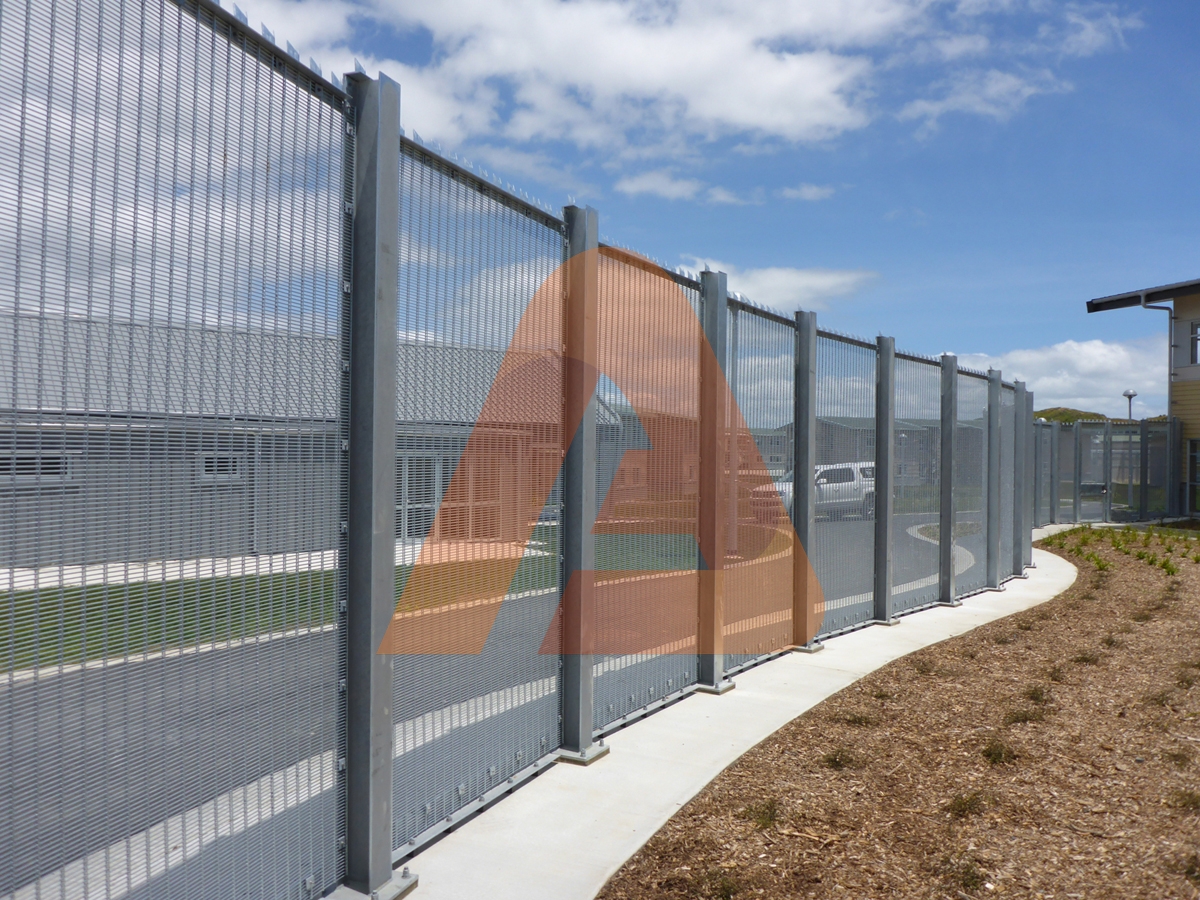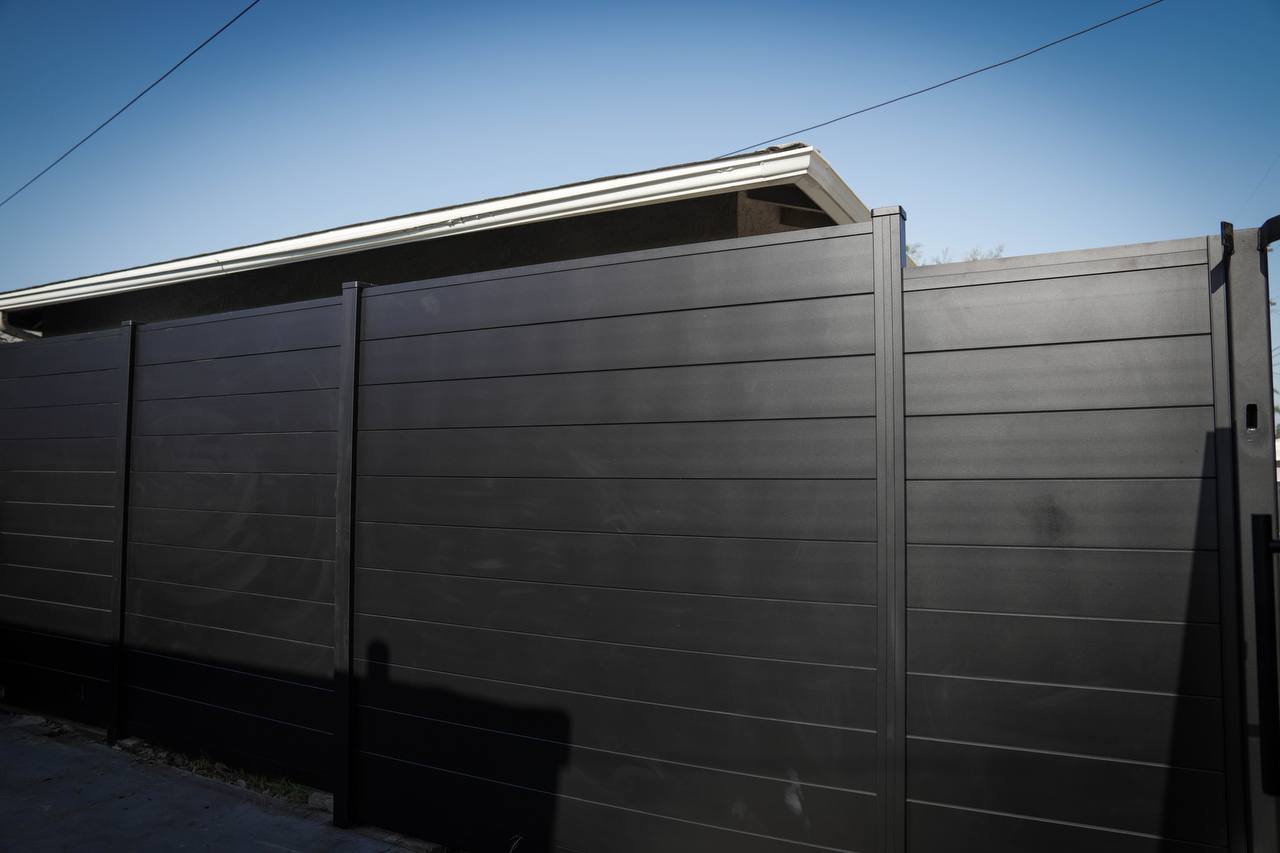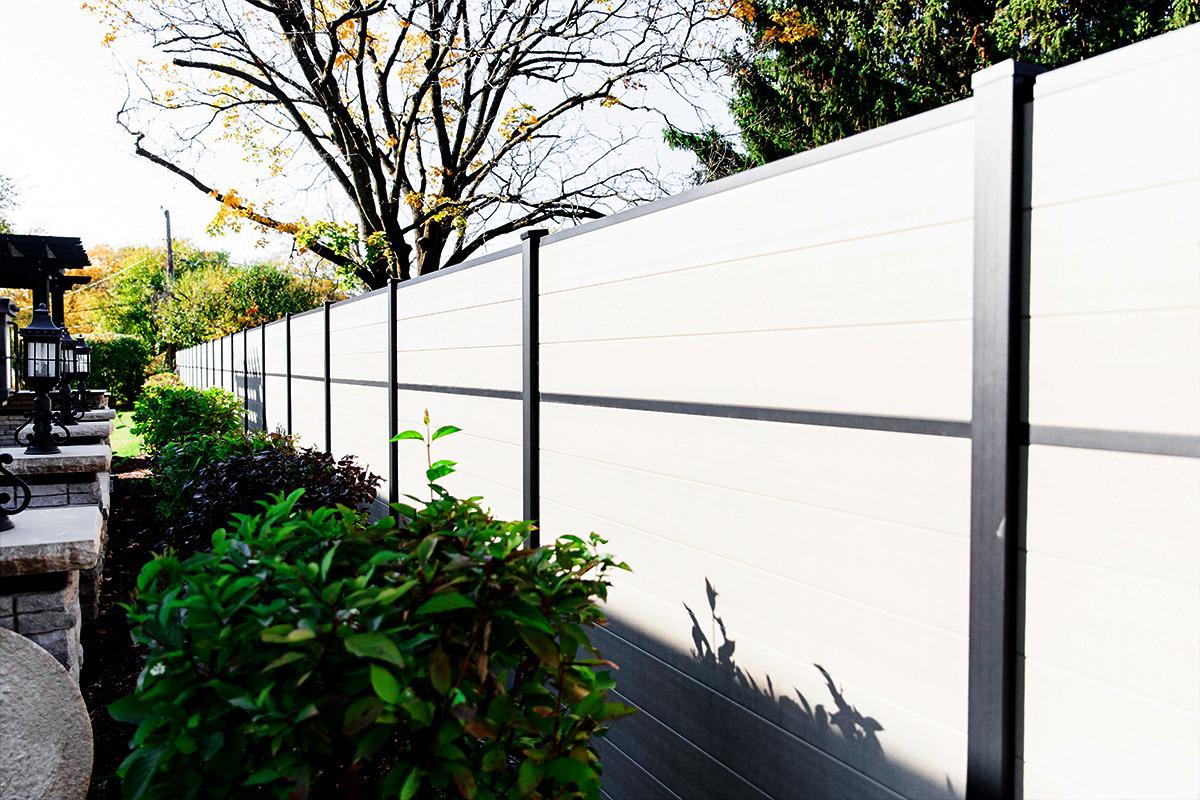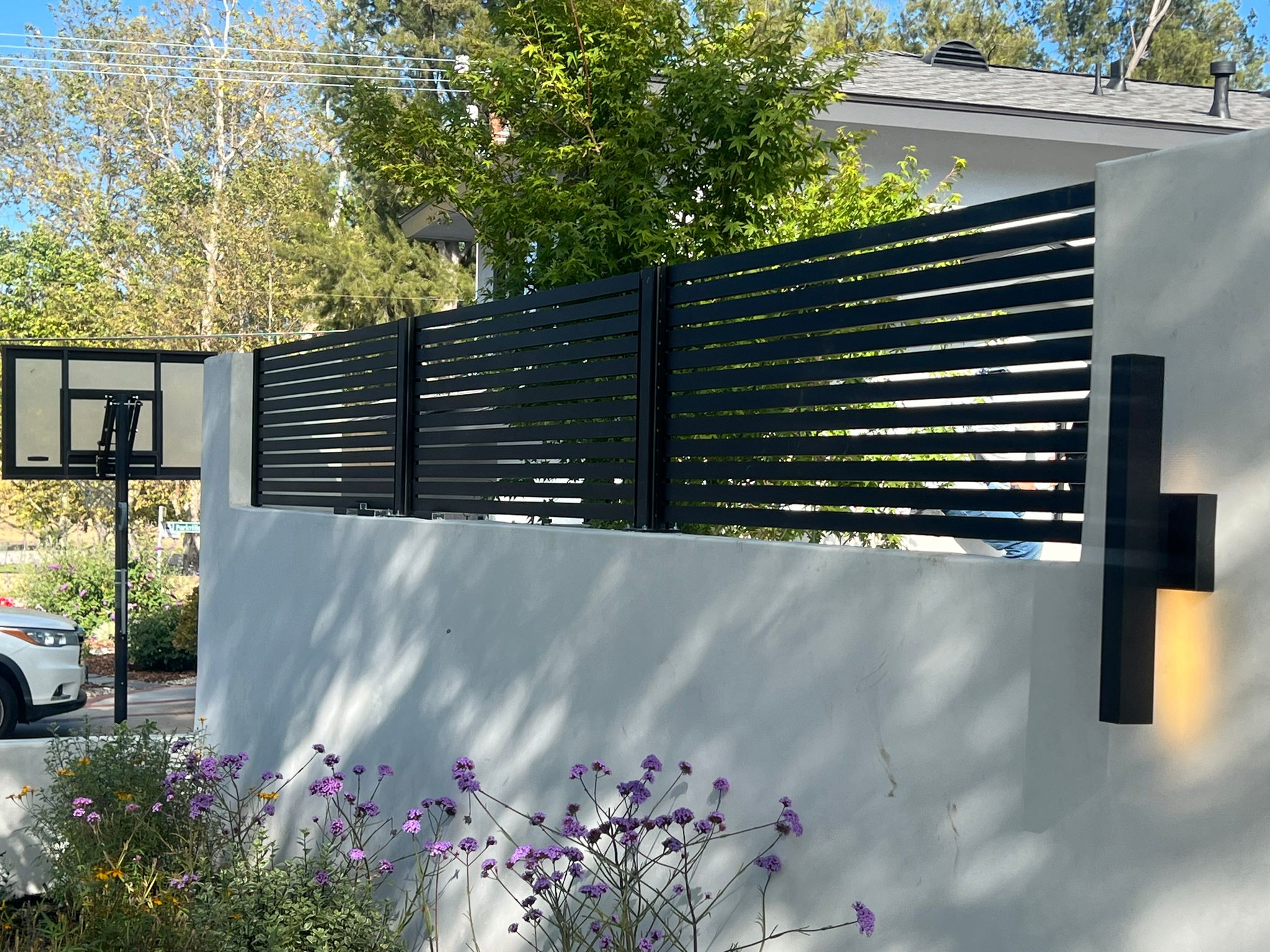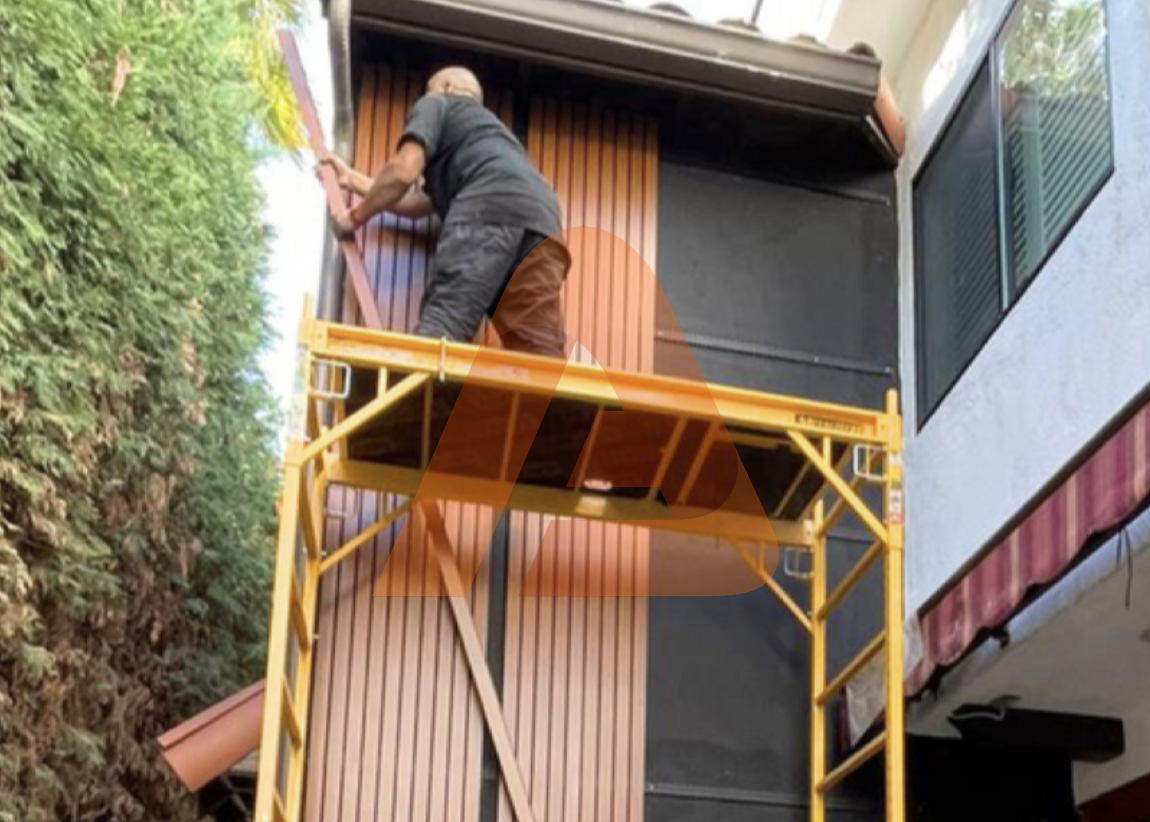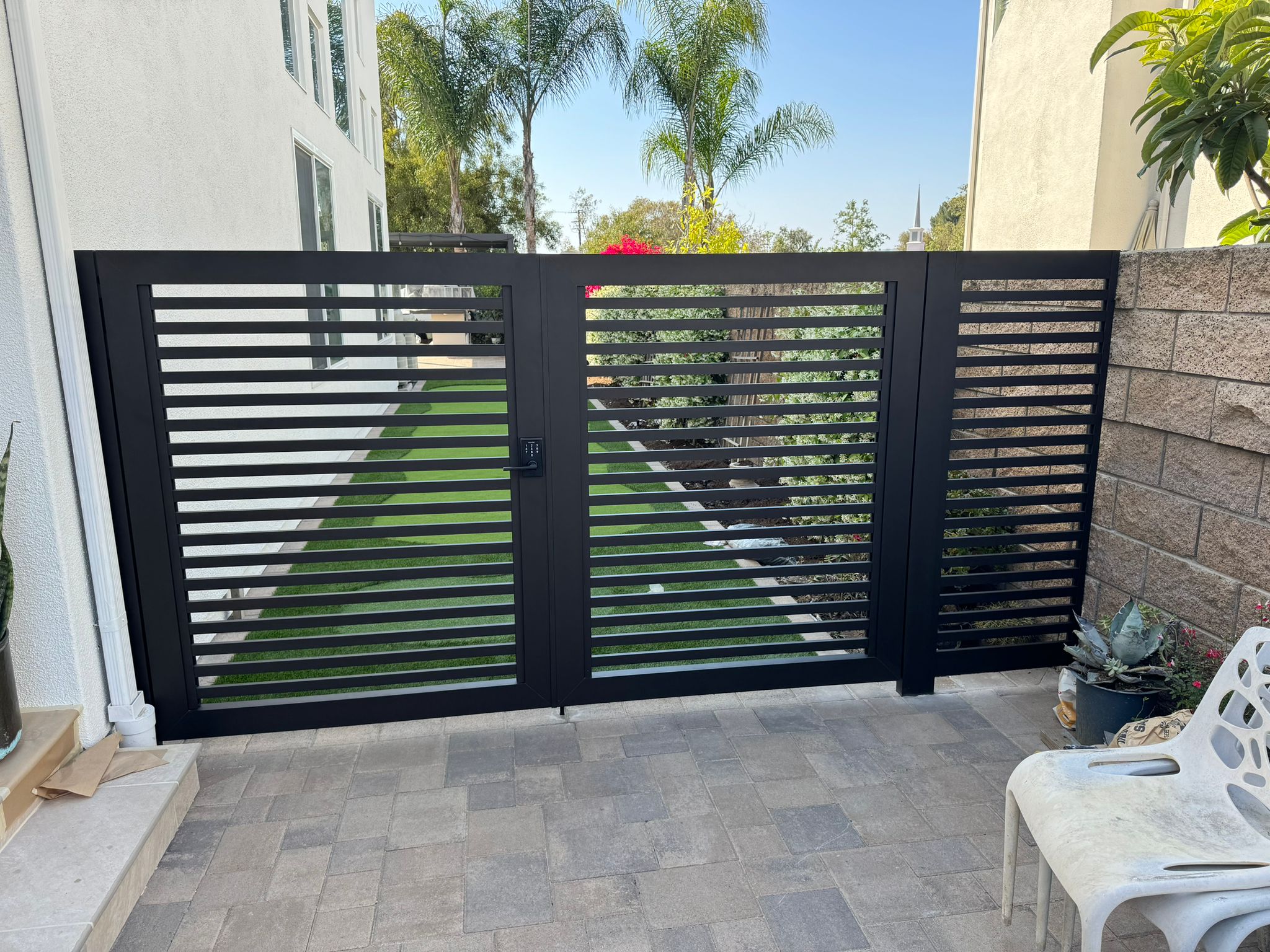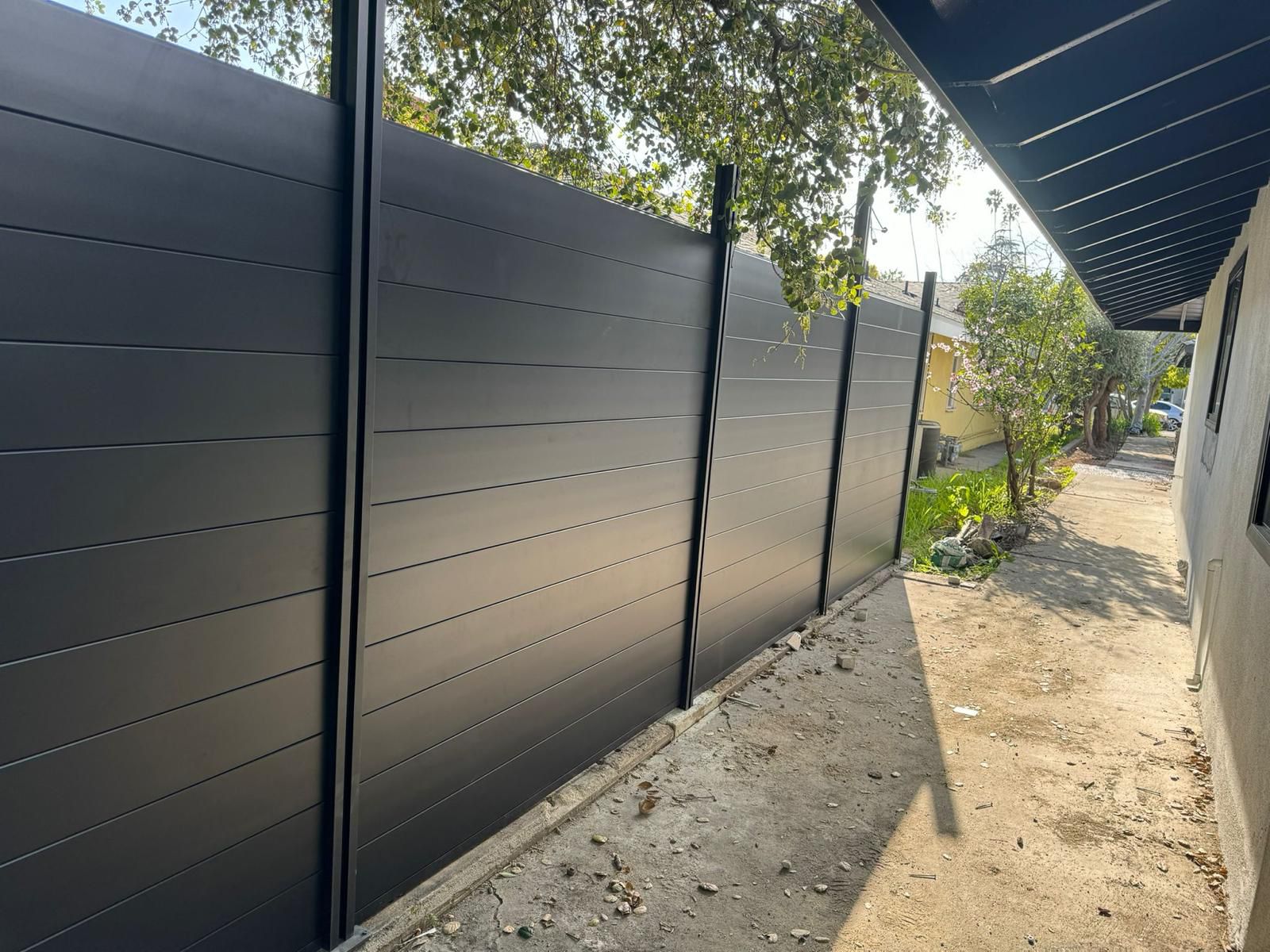
Are Aluminum Gates and Fences Worth It? Pros & Cons Explained
- By Admin
- Posted on
Aluminum gates and fences are becoming increasingly popular due to their durability, corrosion resistance, and sleek appearance. However, they come with both advantages and disadvantages. In this guide, we’ll explore whether aluminum gates are the right choice for your property.
Challenges of Aluminum Gates and Fences
Despite their benefits, aluminum gates and fences are not as widely used as steel due to a few key factors:
- Higher Cost – Aluminum is more expensive than steel, leading some homeowners to opt for more affordable materials.
- Limited Manufacturers – Specialized equipment and expertise are required for production, reducing the number of available manufacturers. Many companies prefer working with steel due to its easier processing and lower material costs.
- Welding Challenges – Traditional welding methods don’t work well with aluminum, requiring specialized techniques. This makes aluminum gates more difficult and expensive to repair compared to steel alternatives.
- Structural Strength – While aluminum is lightweight and resistant to rust, it is softer than steel. This means it can be more susceptible to dents, deformation, or bending if subjected to heavy impact or improper installation.
Advantages of Aluminum Gates and Fences
Aluminum gates offer several benefits, making them a great option for many properties:
Corrosion Resistance – Aluminum naturally forms an oxide layer, preventing rust and increasing longevity. Unlike steel, which requires regular treatments to prevent rust, aluminum remains resistant to moisture, making it ideal for coastal areas, humid climates, and locations with frequent rainfall. Even with exposure to harsh weather, aluminum maintains its strength and structure without weakening over time.
Powder Coating Protection – A polymer coating enhances durability and aesthetics for up to 20 years. It also adds extra resistance to scratches and environmental damage. Unlike traditional paint, powder coating is more resistant to chipping, peeling, and fading, ensuring that your gate maintains a sleek and polished look with minimal upkeep. Additionally, powder coating comes in various colors and finishes, allowing homeowners and businesses to customize their gates to match their property’s design.
Lightweight Material – Aluminum is lighter than steel, reducing strain on hinges, motors, and automation systems. This makes installation easier and helps extend the life of gate mechanisms. The reduced weight also lowers transportation and labor costs, making it more convenient for both residential and commercial applications. Additionally, the lightweight nature of aluminum means that automated gates operate more efficiently, reducing wear and tear on motors and other moving components over time.
Easy Repairs – Modular designs allow damaged parts to be replaced individually without affecting the entire structure. This can reduce maintenance costs in the long run. If a section of the gate becomes damaged due to impact or wear, it can be swapped out without requiring a full replacement, unlike welded steel gates. This feature is particularly beneficial for large properties, businesses, or public spaces where ongoing maintenance is necessary to keep the fencing in top condition.
Disadvantages of Aluminum Gates and Fences
While aluminum is a great material for gates and fences, it does come with a few drawbacks that are important to consider before making a decision:
Higher Initial Cost – Aluminum gates are generally more expensive than steel alternatives, which can be a drawback for budget-conscious homeowners. The higher cost stems from the material’s production process, and while the gates are durable and long-lasting, the upfront investment may not be ideal for every buyer, especially when cheaper options are available. It’s essential to weigh the long-term benefits against the initial cost.
Difficult Restoration – While aluminum is durable, damage to its protective coating is harder to fix compared to other materials. Unlike steel, aluminum cannot be easily re-coated with heat treatments or sanded down and re-painted to restore its original finish. If the coating is scratched or chipped, it may require a professional repair or complete replacement of the damaged panel. This can result in higher maintenance costs over time, particularly for gates that endure heavy traffic or environmental wear.
Softness of Material – Aluminum, although strong, is softer than steel and can be more prone to dents or deformation under heavy impacts. Careful installation is critical to ensure the structure remains intact, as mishandling during transport or installation can lead to permanent damage. Additionally, aluminum gates are more susceptible to bending if exposed to forceful impacts, making them less ideal for areas where high-security measures or extreme durability are required.
Where Are Aluminum Gates Used?
Aluminum’s versatility makes it suitable for both residential and commercial use. Its long lifespan and resistance to corrosion make it an attractive option for a variety of environments where durability and aesthetic appeal are important.
Residential Homes & Cottages
Aluminum gates are highly valued in residential settings for their aesthetic appeal and corrosion resistance. Homeowners looking for a stylish, modern gate that requires little maintenance often choose aluminum. It’s perfect for homes, cottages, or any residential property that needs a gate that not only enhances the look but also provides long-lasting performance.
Commercial Properties
Businesses prefer aluminum gates for their lightweight nature and minimal maintenance. Its sleek design and durable features make it an ideal choice for commercial spaces such as office buildings, warehouses, and retail establishments. With aluminum, commercial properties benefit from a strong yet attractive gate solution that can withstand the demands of a business environment.
Public Spaces
Aluminum fencing is commonly used in schools, parks, hospitals, and other public areas due to its durability and resistance to rust. It provides a secure, low-maintenance solution for public spaces that require long-term use and minimal upkeep. Aluminum gates in these settings offer a perfect balance of safety, longevity, and visual appeal.
Industrial & Transportation Hubs
Aluminum gates and fences are also used at airports, train stations, and industrial complexes. These locations require strong, secure fencing that doesn’t weigh down the structural integrity of gates or barriers. Aluminum’s lightweight yet sturdy properties make it an ideal material for high-security areas that still need to maintain functionality without compromising on safety.
Conclusion
Aluminum gates and fences offer an excellent balance of durability, aesthetics, and low maintenance, but they come at a higher initial cost. If you’re looking for a rust-resistant, lightweight, and stylish fencing option, aluminum is worth considering.


